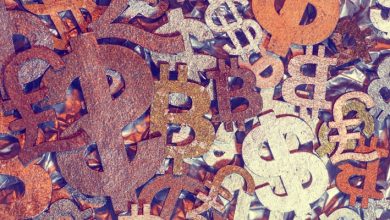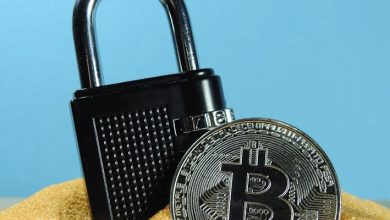How to Assess the Security of Crypto Exchanges

- Understanding the risks associated with crypto exchanges
- Key factors to consider when evaluating the security of a crypto exchange
- Common security vulnerabilities in crypto exchanges
- Best practices for securing your funds on a crypto exchange
- How to verify the legitimacy of a crypto exchange
- The importance of choosing a regulated crypto exchange
Understanding the risks associated with crypto exchanges
It is crucial to understand the risks associated with cryptocurrency exchanges before engaging in any trading activities. While crypto exchanges provide a platform for buying, selling, and trading digital assets, they are also vulnerable to security breaches and hacks.
One of the primary risks of using crypto exchanges is the potential for cyber attacks. Hackers target exchanges to steal users’ funds, personal information, or even disrupt trading activities. These security breaches can result in financial losses and damage to a user’s reputation.
Another risk to consider is the lack of regulation in the cryptocurrency market. Unlike traditional financial institutions, crypto exchanges operate in a decentralized and largely unregulated environment. This lack of oversight can make it challenging to hold exchanges accountable for any fraudulent activities.
Furthermore, users should be aware of the risk of exchange insolvency. In the past, several exchanges have shut down unexpectedly, leaving users unable to access their funds. It is essential to research and choose reputable exchanges with a proven track record of security and reliability.
Overall, while crypto exchanges offer a convenient way to trade digital assets, users must be cautious and informed about the risks involved. By understanding these risks and taking proactive measures to secure their accounts, users can mitigate the potential threats associated with using cryptocurrency exchanges.
Key factors to consider when evaluating the security of a crypto exchange
When evaluating the security of a crypto exchange, there are several key factors to consider to ensure the safety of your digital assets. One crucial aspect to examine is the exchange’s reputation and track record when it comes to security incidents. Look for reviews and feedback from other users to gauge the level of trustworthiness of the platform.
Another important factor is the implementation of security measures such as two-factor authentication, encryption, and cold storage for funds. These measures can help prevent unauthorized access to your account and protect your assets from hacking attempts. Additionally, consider the exchange’s compliance with regulatory standards and industry best practices to ensure that it meets the necessary security requirements.
It is also essential to assess the exchange’s response to security breaches and how they handle incidents when they occur. Look for transparency in communication and a clear plan of action to address any security issues promptly. Regular security audits and penetration testing are indicators of a proactive approach to maintaining a secure trading environment.
Furthermore, consider the exchange’s insurance coverage and fund protection mechanisms in case of unforeseen events such as theft or insolvency. Having insurance coverage can provide an extra layer of security and peace of mind knowing that your funds are protected in case of emergencies.
In conclusion, evaluating the security of a crypto exchange requires a comprehensive analysis of various factors such as reputation, security measures, regulatory compliance, incident response, insurance coverage, and fund protection. By considering these key factors, you can make an informed decision when choosing a secure platform for your cryptocurrency transactions.
Common security vulnerabilities in crypto exchanges
When assessing the security of crypto exchanges, it is crucial to consider common security vulnerabilities that could put users’ funds at risk. Some of the most prevalent vulnerabilities in crypto exchanges include:
- Phishing Attacks: Phishing attacks involve fraudulent attempts to obtain sensitive information, such as login credentials or private keys, by posing as a trustworthy entity. Users may unknowingly provide their information to malicious actors, compromising their accounts.
- Weak Authentication: Weak authentication mechanisms, such as simple passwords or lack of two-factor authentication, can make it easier for attackers to gain unauthorized access to users’ accounts and funds. It is essential for exchanges to implement robust authentication methods to prevent unauthorized access.
- Insufficient Encryption: Inadequate encryption of data transmitted between users and the exchange can expose sensitive information to interception by hackers. Strong encryption protocols should be implemented to protect users’ data from being compromised.
- Smart Contract Vulnerabilities: Smart contracts are susceptible to vulnerabilities that can be exploited by attackers to manipulate transactions or steal funds. Exchanges should conduct thorough security audits of smart contracts to identify and mitigate potential vulnerabilities.
- Insider Threats: Insider threats pose a significant risk to the security of crypto exchanges, as employees with access to sensitive data may intentionally or unintentionally compromise the system. Exchanges should implement strict access controls and monitoring mechanisms to detect and prevent insider threats.
By being aware of these common security vulnerabilities, users can make informed decisions when choosing a crypto exchange and take proactive measures to protect their assets. It is essential for exchanges to prioritize security measures to safeguard users’ funds and maintain trust in the cryptocurrency ecosystem.
Best practices for securing your funds on a crypto exchange
When it comes to securing your funds on a crypto exchange, there are several best practices you can follow to minimize the risk of theft or hacking. Here are some key steps you can take to protect your investments:
- Enable two-factor authentication (2FA): By enabling 2FA on your account, you add an extra layer of security that requires a second form of verification in addition to your password.
- Use a hardware wallet: Consider storing the majority of your funds in a hardware wallet rather than keeping them on the exchange. This significantly reduces the risk of your funds being compromised.
- Regularly monitor your account: Keep a close eye on your account activity and report any suspicious transactions immediately. The sooner you detect any unauthorized activity, the quicker you can take action to secure your funds.
- Avoid using public Wi-Fi: When accessing your crypto exchange account, avoid using public Wi-Fi networks as they are more vulnerable to hacking. Stick to secure, private networks to reduce the risk of unauthorized access.
- Keep your software up to date: Make sure you regularly update your operating system, antivirus software, and any other programs you use to access your exchange account. This helps patch any security vulnerabilities that could be exploited by hackers.
By following these best practices, you can significantly improve the security of your funds on a crypto exchange and reduce the risk of falling victim to theft or hacking. Remember, it’s always better to be proactive when it comes to securing your investments in the volatile world of cryptocurrency.
How to verify the legitimacy of a crypto exchange
When considering using a crypto exchange, it is crucial to verify its legitimacy to ensure the security of your investments. Here are some key steps to follow in order to assess the legitimacy of a crypto exchange:
- Check for the exchange’s registration and regulation status: Look for information about where the exchange is registered and if it is regulated by any financial authorities. This can provide you with a level of assurance that the exchange is operating within legal boundaries.
- Read reviews and feedback from other users: One of the best ways to gauge the legitimacy of a crypto exchange is to see what other users are saying about their experiences. Look for reviews and feedback on reputable websites and forums to get a sense of the exchange’s reputation.
- Verify the security measures in place: A legitimate crypto exchange will have robust security measures in place to protect users’ funds and personal information. Look for features such as two-factor authentication, cold storage for funds, and encryption protocols.
- Research the team behind the exchange: Take the time to research the team members behind the crypto exchange. Look for information about their experience in the industry, their track record, and any other relevant details that can help establish their credibility.
- Avoid exchanges with unrealistic promises: Be wary of crypto exchanges that make unrealistic promises such as guaranteed high returns or no risk trading. Legitimate exchanges will be transparent about the risks involved in trading cryptocurrencies.
By following these steps and conducting thorough research, you can verify the legitimacy of a crypto exchange and make informed decisions when it comes to trading cryptocurrencies.
The importance of choosing a regulated crypto exchange
When assessing the security of crypto exchanges, one crucial factor to consider is whether the exchange is regulated. Opting for a regulated exchange provides a layer of protection for investors, as regulatory bodies impose strict guidelines on how the exchange operates. This oversight helps to ensure that the exchange follows best practices when it comes to security measures, customer protection, and financial transparency.
Regulated exchanges are required to adhere to anti-money laundering (AML) and know your customer (KYC) regulations, which are designed to prevent illicit activities such as money laundering and terrorist financing. By complying with these regulations, regulated exchanges create a safer trading environment for users, minimizing the risk of fraud or other nefarious activities.
Furthermore, in the event of any disputes or issues with the exchange, users of regulated platforms have recourse to regulatory bodies that can help resolve conflicts. This added layer of oversight can provide peace of mind to investors, knowing that there is a higher authority to turn to if needed.
Overall, choosing a regulated crypto exchange is a crucial step in ensuring the security of your investments. While unregulated exchanges may offer enticing features or lower fees, the risks associated with using them far outweigh any potential benefits. By prioritizing security and opting for a regulated exchange, investors can mitigate risks and trade with confidence in the rapidly evolving world of cryptocurrencies.



